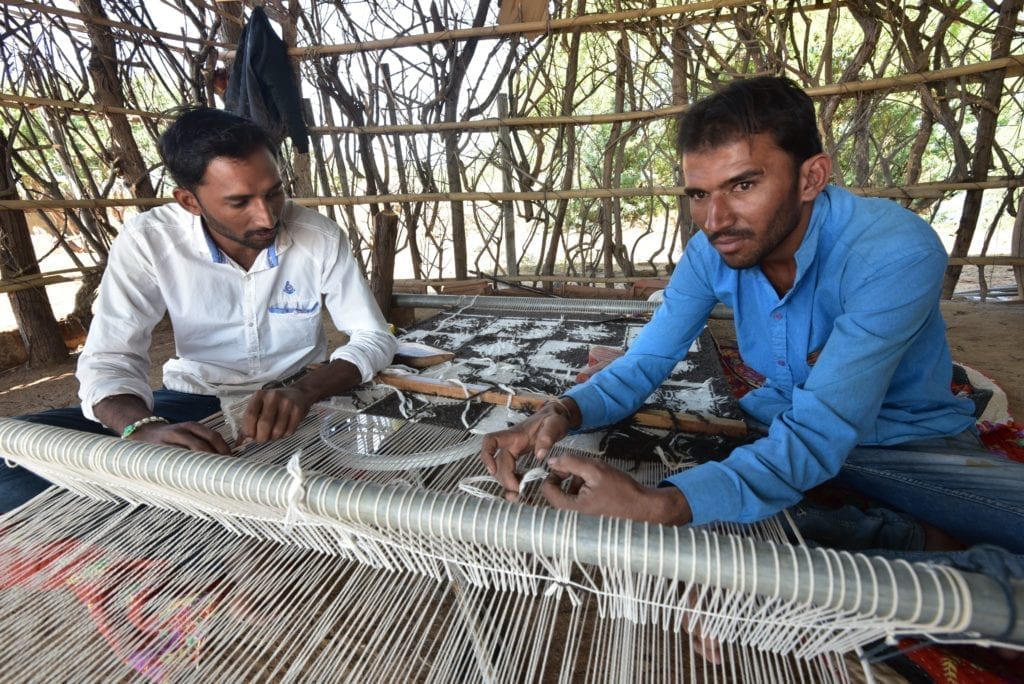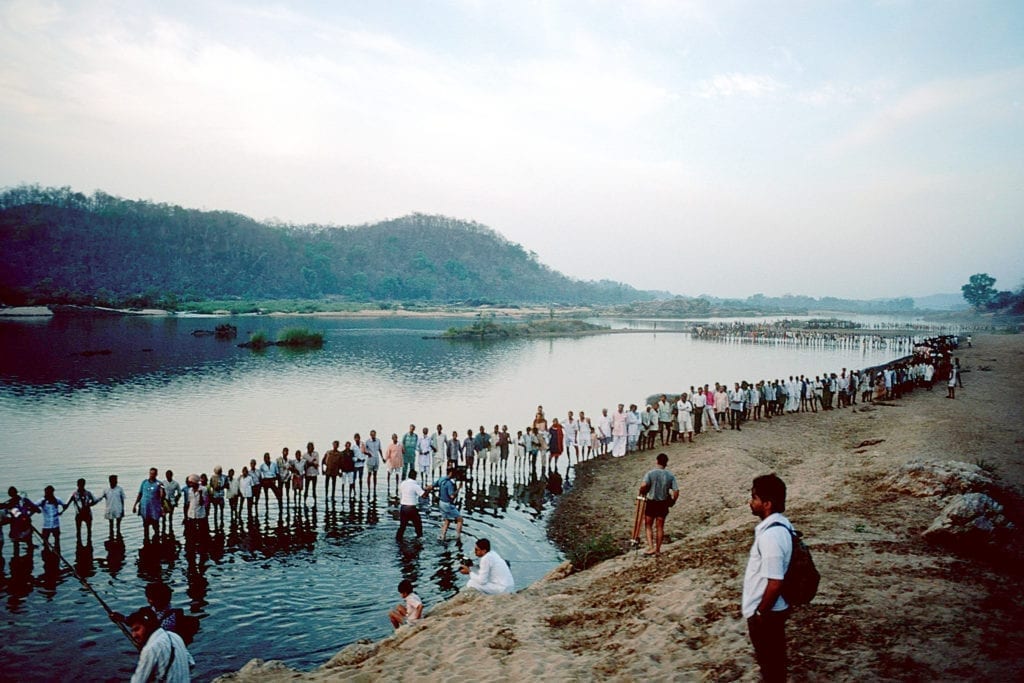Circular Perspectives for Linear Mindsets: Interview With Ashish Kothari
How did linear thinking succeed in dominating our mental infrastructure? What can be done to change the linear mindset of corporate and political leaders, and what should consumers do if they want to move away from a linear culture, linear products and a linear lifestyle? REVOLVE Circular spoke with four innovative thinkers from India, Switzerland, Uganda and the USA to hear their circular views.
Here is the interview with Ashish Kothari, the creator and main proponent of the concept of Ecological Swaraj in India, also called Radical Ecological Democracy. In our interview, Ashish Kothari particularly points out the pluriverse of alternatives to ‘development’ that are either part of ancient systems of living in harmony with the earth, or new innovations including from within industrialized, western societies as well as the Global Tapestry of Alternatives, one of several platforms for sharing, collaboration, advocacy, and becoming a more critical mass to bring about macro-change.
Please allow us to start with a big question, or rather two: What is wrong with the linear economy? Since when?
Since colonial times, or more precisely post-WWII, the predominance of classical and then neo-liberal economics has classified the entire world in linear fashion. ‘Developing’ and ‘developed’, traditional and modern, primary-secondary-tertiary sectors, and so on, have become not only classifications but also normative directions in which to move. This approach, originating in the North/West, cleverly disguised the real aim of gaining worldwide control to enable American and European economies to revive from the ruins of the war, by convincing other countries and regions that they all have to follow in their footsteps, and that they will generously aid in this process.

The categorization is also based on highly reductionist ways of thinking, e.g. defining ‘developing’ and ‘developed’ based on simplistic criteria such as GDP, or size of the economy measured in predominantly financial terms. This means that highly sophisticated ways of thinking, knowing, doing, and being that have characterized other regions of the world were considered ‘backward’, to be replaced by modernist, ‘scientific’ epistemologies and ontologies. Communitarian ways of life focused on the commons were to be replaced by individualistic, privatized systems, and integrated material-spiritual-cultural ways of life by a separation amongst these.
In the last three decades, the ideology of linear development has been aggressively pushed through ‘structural adjustment’ and other programs backed by International Monetary Fund (IMF), World Bank, and other institutions.
Has linear thinking succeeded in dominating our mental infrastructure? If yes, then how?
In the last 75-80 years since ‘development’ got defined in the above way, it has been planted in people’s minds across the world with a clever mix of financial incentives and arm-twisting by structures such as the Bretton Woods institutions, as also cultural messaging about what is the ‘good life’.
Linear ‘development’ is also subtly equated to the unfolding of the baby in the womb into a full human adult, or of the progression of a seed into a tree; biological evolution is equated to the evolution of societies from developing to developed. Virtually all countries have imbibed these, and their own elites have pushed them into school textbooks, economic plans, political manifestos and the like. Even as such approaches to the economy have created enormous inequalities and ecological devastation, a vast number of people still remain convinced that they need ‘development,’ and that even if they are not benefiting right now, one day they too will reach the levels of economic wealth and comforts that the rich are enjoying.
Cultural icons, backed by the full force of advertising (one of the world’s largest industries), have served to push these further into the conscious and subconscious of people, to the extent that movements and individuals questioning ‘development’ or the linearity of economic pathways, or growth, are looked at as if they are heretics. In many countries such as India, in more recent times such critics and dissenters are also being equated as being ‘anti-national’, even ‘extremist’ or ‘terrorist’.
For change to happen, who needs to educate our political and corporate leaders, and on what? Or is it the consumers who need to change first?
The most effective strategy to challenge the linear mindset is to enable the mobilization of marginalized peoples, communities and individuals who have been negatively impacted or ‘left behind’ by the dominant ‘development’ model, and who can powerfully resist it; secondly, by enabling communities and people who are demonstrating alternative approaches that meet human needs and aspirations without causing the kind of ecological damage, inequality, and deprivation that such development engenders.

This is not about what happens first; simultaneous action is needed in all sections of society. As producers and workers, in all sectors of the economy, we need to mobilize to demand their rights, including control over the means of production; as consumers we all need to question our lack of real choice, and what corporations are thrusting down our throats.
Exposing the power and profit games behind the currently dominant production system (capitalist or statist), has to be part of this. So too, exposing the underlying structures and relations of patriarchy, racism, casteism; and human-centeredness vis-à-vis the rest of nature.
Why is the predominant ‘reduce-reuse-recycle’ narrative towards a circular economy not enough? Or is it?
While changes in consumer behavior are a crucial part of the solution, especially in the case of elite/rich consumers, this will not by itself be enough. Systems of production, trade and exchange, ownership, and the ideologies underlying them, have to be transformed.
The ‘reduce-reuse-recycle’ or ‘circular economy’ kind of narratives do not necessarily challenge the structures of inequality and unsustainability as listed above, and indeed mega-corporations and powerful states can all claim to be doing RRR. These narratives are easily co-opted by these structures. More systemic transformations are needed, which I will point to below.
We would like to end on a positive note as we promote constructive journalism that also provides solutions. Is there hope to be had? What kind of “good systemic change” is already underway? Who does it, and how can it be replicated?
Across the world communities and collectives have come up with a range of positive responses to the crises, alternatives to ‘development’ that are either part of ancient systems of living in harmony with the earth, or new innovations including from within industrialized, western societies. But it is the Global South – not its governments, but its people! – that is taking a lead in integrating ecological wisdom and resilience with economic democracy and social justice, building on traditions of working within and with nature, sophisticated knowledge systems that go back a few millennia, and community ways of doing things – complementing these with the best of what is emerging from new technologies or ideologies.

These alternatives range from practices like agroecology (itself extremely diverse), water/food/energy sovereignty using decentralized approaches, direct or radical democracy, sustainable settlements, struggles for equality of genders, sexualities, identities, movements for consumer rights, to the re-assertion of ancient worldviews like sumac kawsay, buen vivir, ubuntu, swaraj and the emergence of new ones like ecofeminism, degrowth, and conviviality.
There is a pluriverse of these, with perhaps a set of ethical principles that they share in common, but otherwise different from each other in many ways. All of them challenge today’s hegemonies, including linear thinking as also the control of nation-states and corporations, and older ones like patriarchy and racism. What is needed are platforms to bring them together, for sharing, collaboration, joint actions, advocacy, and becoming a more critical mass to bring about macro-change. One such attempt is the Global Tapestry of Alternatives.
In India some of us are promoting the idea of eco-swaraj, or radical ecological democracy, which entails such fundamental transformations towards radical political and economic democracy, localized self-reliance, cultural and knowledge diversity and commons, social justice and well-being, and of course making peace with the earth. This aligns closely with approaches of transformation in other parts of the world, such as those featured in the book Pluriverse mentioned above.
